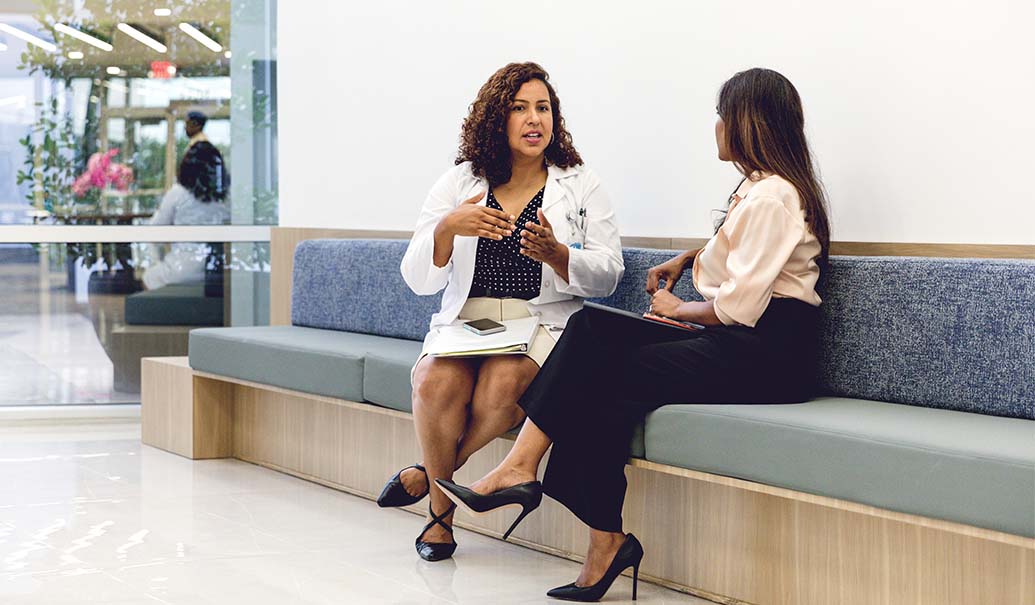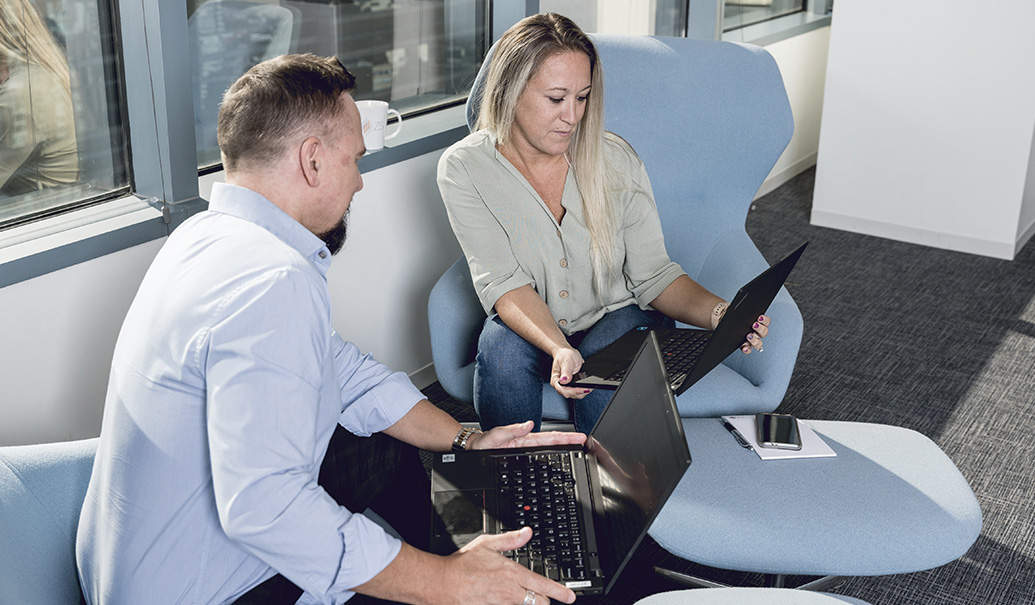Clinical trials have become increasingly complex, particularly due to widening gaps in participant diversity. According to the 2020 census, Black people make up just over 13% of the U.S. population while people of Hispanic or Latino origin represent about 18%. However, both groups are widely underrepresented in clinical trials, with Black people making up 5% of participants and Hispanic or Latino people comprising 1%.
As part of our commitment to advancing patient health and equity, our global team of healthcare research and development experts stays up-to-date on best practices, changing regulations and industry trends to help clients diversify their clinical trials. Year-round, ZSers like Sharon Karlsberg work to ensure the voices of patients from underrepresented populations are heard in clinical research.
Where passion changes lives
Sharon joined ZS to pursue her passion for integrating science, medicine and innovation to improve patients’ lives. This drive led her to oncology, where she developed deep expertise in market research, product launch, branding strategy and more. After many years of focusing on emerging cancer therapies, Sharon decided to branch out and try something new. Her passion for diversity, equity and inclusion (DEI) inspired her to lead ZS’s DEI accelerator, part of ZS’s clinical development practice area. Together with co-lead Chibby Ebhogiaye, Sharon is working toward diversifying clinical trials to represent patient populations more accurately.
“I’ve always believed in ZS’s unique ability to combine the ‘head’ (data, analytics and technology) and the ‘heart’ (patient insights, behavioral science and user experience) to solve tough client problems. Today, we can help companies make better decisions to create more human-centered and inclusive clinical trials that are better for patients, less expensive for sponsors and ultimately help advance life-saving medicines,” she says. “The DEI accelerator in our clinical practice area isn’t about creating something separate or siloed. It is about working to embed DEI objectives into everything we do.”
Despite facing a disproportionate burden for some diseases, racial and ethnic minorities are frequently underrepresented in clinical trials and research. For example, Asian Americans are twice as likely to develop stomach cancer than Caucasians. However, they have historically been underrepresented in research for GI or colorectal cancer treatment options. Given evolving Food and Drug Administration regulations in the U.S. and our own ESG commitments, ZS’s DEI accelerator works to ensure clinical trials more accurately reflect the populations most affected by the disease they aim to treat.
Sharon and her team use data analytics, primary research and partnerships with advocacy groups to bring the patient’s voice into clinical trial design. These approaches determine whether patients representing diverse populations feel comfortable and are able to participate in drug development studies. “Ultimately, we don’t want to work trial by trial,” she explains. “We are building a research foundation to determine and address the needs of underrepresented populations. With this organizational capability, we can look at how cognitive science influences a patient’s choice to participate or a doctor’s choice to offer a trial.”
This research has already begun to change how clinical trials are structured. The industry is seeing a rise in decentralized clinical trials, where a portion of the study is conducted outside the primary trial site. This change has helped reduce the travel burden on patients. By working with trusted physicians and easing the burden for trial participants, Sharon and her team are actively working to bring new patient perspectives into medical innovations.
“We are asking clients to put in a lot of work and change how things have been done,” Sharon says. “I’m very optimistic that everyone sees this as both the right thing to do and the necessary thing to do, moving us forward to a more equitable future.”
To stay informed on how ZS is working to improve patient health and reduce disparities, follow us on social media.
Life at ZS
Add insights to your inbox
We’ll send you content you’ll want to read – and put to use.















